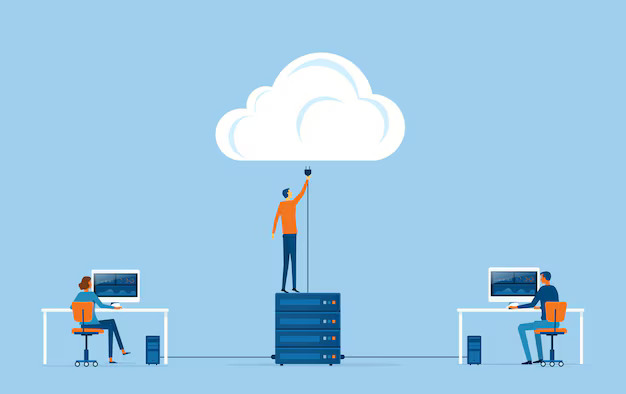Top Cloud Migration Trends 2025

Strong 8k brings an ultra-HD IPTV experience to your living room and your pocket.
In 2025, cloud migration is no longer just a technical process—it’s a business-critical move that can define how fast and efficiently a company grows. Whether you're a startup or an enterprise, the demand for smart, secure, and flexible cloud migration services is at an all-time high.
But migrating to the cloud isn't a one-size-fits-all journey. The strategies, tools, and expectations have changed. Here’s a breakdown of what’s shaping cloud migration today, and why staying on top of these trends is so important for IT teams, decision-makers, and developers alike.
1. Multi-Cloud and Hybrid Cloud: Flexibility is King
More and more companies are choosing to work with multiple cloud providers at once, combining the strengths of AWS, Azure, Google Cloud, and even private clouds. This multi-cloud and hybrid cloud approach helps avoid vendor lock-in, improves resilience, and ensures you meet local data laws—especially for global businesses.
Instead of being stuck with one platform, teams now design systems that run across different environments based on what's best for each workload.
2. Automation Is Taking Over the Heavy Lifting
Gone are the days when migrating to the cloud meant manually moving each workload. Automation tools are now doing much of the hard work—mapping infrastructure, analyzing dependencies, forecasting costs, and moving systems with minimal disruption.
With platforms like AWS Migration Hub, Azure Migrate, and Google Cloud Migrate, organizations are able to speed up the transition and reduce errors. AI is also playing a growing role, giving smart recommendations for architecture and resource planning.
3. Lift-and-Shift is Out. Cloud-Native is In.
While “lift-and-shift” used to be the fastest way to move to the cloud, it’s no longer the most efficient. In 2025, teams are embracing cloud-native development—designing apps from the ground up using microservices, containers (hello Docker!), Kubernetes, and serverless functions.
This approach means more flexibility, better scaling, and faster updates. It’s a game changer for companies that want to move fast and stay competitive.
4. Security Isn’t Optional—It’s Built In
With so much data moving into the cloud, security is front and center. Companies are now building it into every step of the migration process—from access controls and encryption to real-time threat detection.
Regulations like GDPR, HIPAA, and industry-specific standards are pushing teams to make security and compliance a priority, not an afterthought. Zero Trust architecture and automated policy enforcement are becoming the norm.
5. Managing Cloud Costs with FinOps
The cloud gives you power and scale, but without visibility, it can also lead to surprise bills. That’s where FinOps comes in—a financial management approach for the cloud.
It brings engineers, finance, and product teams together to monitor usage, cut waste, and control costs. Tools like CloudHealth, Kubecost, and native dashboards from cloud providers help teams stay on budget while still scaling smart.
Cloud migration today isn’t just about moving data—it’s about transforming the way your business works. With the right tools, smart planning, and an eye on the latest trends, your team can build a future-ready cloud infrastructure that’s scalable, secure, and cost-efficient.
Dive deeper into this topic with the full blog post here: Emerging Cloud Migration Trends to Watch
Note: IndiBlogHub features both user-submitted and editorial content. We do not verify third-party contributions. Read our Disclaimer and Privacy Policyfor details.


